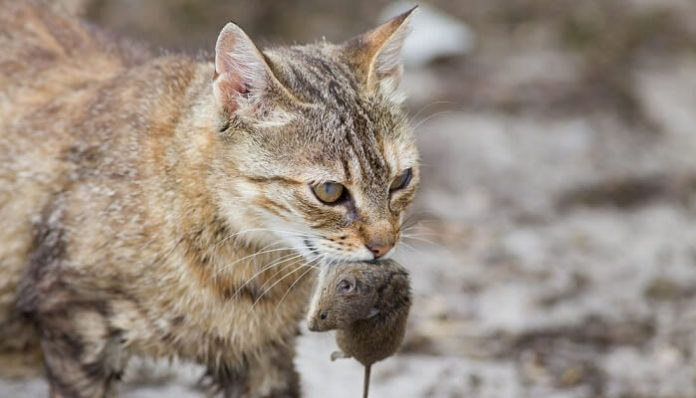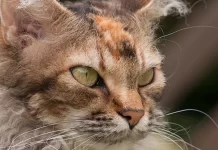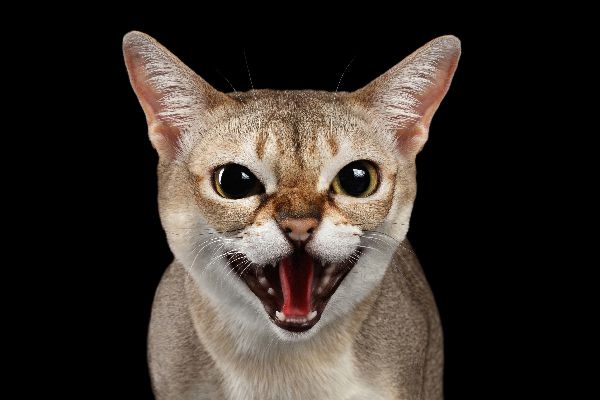Last Updated on January 9, 2024 by Fumipets
Do Cats Eat Mice?
A cat hunting a mouse in search of a quick meal has been shown in films and animated shorts. However, if your cat primarily spends time indoors and you’ve never lived somewhere with mice, you may wonder if you haven’t seen it for yourself. Cats eat mice, right?
They most certainly do. Cats are hunters, and mice are undoubtedly part of a cat’s diet, especially in the wild, so it’s not really humorous.
We examine the reasons behind cats’ apparent fondness for eating mice and if you should be concerned if your cat does so. We also consider strategies for attempting to lessen your cat’s hunting if it has become an issue.
How Cats Hunt
A cat’s natural instinct is to hunt, especially for little prey. Even if it wasn’t with an actual animal, we’ve all seen it in their play. Cats spend a lot of time pursuing, snooping, pouncing, and devouring toys (and sometimes our hands).
Cats hunt using two different strategies. One requires movement, while the other calls for calmness and patience.
Outside of their prey’s habitat or hiding spot, cats often spend the majority of their time laying in wait for lengthy periods of time without moving much.
However, they also have the ability to pursue after their prey in quick bursts of energy. There might be stalking (or laying in wait) at the beginning and sprinting, pouncing, and perhaps capturing at the finish.
Why Do Cats Eat Mice?
Impulse and survival are the only concerns. Cats are crepuscular, meaning they are most active between dark and morning, and this is when they will spend their time hunting. Even when you feed your cat often, their natural drive to hunt persists; nevertheless, depending on how hungry they are, they may or may not kill and consume their victim.
Small cameras that were fastened to the collars of 60 pet cats were used in a study by the University of Georgia. The cats spent a lot of time hunting and killing tiny animals and lizards, but they only consumed what they killed around 30% of the time, according to these cameras. They brought their prey home around 20% of the time (and likely left them in their owner’s shoes).
Cats have been gradually tamed for many years (some researchers believe over the last 12,000 years). The rest of history followed because they were useful for getting rid of pests, notably mice, in grain storage.
It is practically hard-wired into a cat’s biology, DNA, and heritage to hunt and consume mice. Hunting may be entertaining for cats as well.

Why Do Cats Bring Mice as Gifts to Their Owners?
Keeping their prey in a secure environment is one of the reasons cats bring their prey inside. However, in other situations, if a female cat is responding in this way often, it may be because she is acting instinctively and giving her young, who is you, an educational moment and nourishment. She is aware that there is no way you could have managed to catch a mouse on your own.
Because your cat is effectively informing you that you are a member of their family, as unpleasant as it is for humans, it is a flattering and kind gesture on their side.
This is also a solid justification for never punishing your cat for bringing you a present. A cat’s impulse to chase, capture, and bring you a mouse is totally normal, therefore you shouldn’t punish them for it.
Why Do Cats Play With Mice?
You may find it upsetting to see a cat toying with a mouse before murdering it. In a 1979 study, scientists found that the longer the cat played with its prey, the longer it survived.
They came to the conclusion that cats play with their prey to exhaust them, making them ultimately safer for cats. For instance, they discovered that rats survived longer than mice.
Cats play with their prey until they decide it is safe enough to kill it before approaching it cautiously. But they also discovered that the quicker they killed the cat, the more ravenous it was.
Is It Safe for Cats to Eat Mice?
You may believe that because mice are a natural prey item for cats, your cat can safely consume them. However, there are a few things you need to be aware of.
Should you be worried if your indoor cat ate a mouse that contained poison?
Although it is thought that your cat would need to consume numerous mice to be poisoned, it does happen sometimes. Use ordinary mousetraps, humane traps, or simply let your cat handle the mouse-catching; these are your best options.
Is a raw mouse okay for cats?
Some mice may carry parasites like roundworms or may infect your cat with toxoplasmosis, which can spread to your family as well. Keep a watch on your cat for a few days after your cat ate a mouse, but in general, it’s generally OK. Do not hesitate to take your cat to the veterinarian if you detect anything wrong.

Is it safe to use essential oils to prevent mice?
No, since cats’ livers lack a specialized enzyme for processing essential oils, they may be very hazardous to cats. They may result in disease and even death.
Are There Ways to Reduce My Cat’s Hunting?
There are a few techniques you may use to lessen your cat’s hunting tendencies, but because it’s innate, you’ll never be able to entirely stop it.
• Give your cat a few modest, frequent meals throughout the day. By making your cat work for their food and stimulating their mind, puzzle feeders may be used. This may lessen the temptation to go hunting.
• Don’t let your cat outdoors all night; be sure to feed them at dawn and dusk. Both cats and their prey are most active during this time.
• Construct indoor cat play places. Ample snacks, toys, cat trees, and catnip should be available for your cat. They need to desire to stay indoors more often.
• Have fun with your kitty. Your cat may practice hunting and get exhausted the more you play with them and use toys to resemble their prey. When playing with toys, try to imagine how a mouse or a bird might move. Allow your cat to jump in and grab the toy, but then allow it to “escape” and begin again.
Conclusion
Remember that if you have an outdoor cat, you should be vigilant about taking it to the doctor on time every year to ensure that it is dewormed and free of any other parasites.
Every cat hunts and eats mice on occasion. Your cat undoubtedly finds it enjoyable, even if you don’t. If it becomes a problem, play with your cat often and promote activities that call on its hunting prowess. So that your cat doesn’t become bored, rotate its toys. A cat that is well-fed and often entertained will be content, and the mice will appreciate it.


















